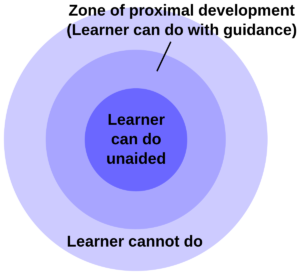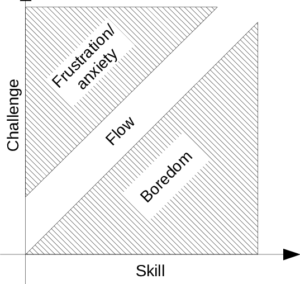
Last Updated on December 5, 2020 by Jacob
This is a living article
I created this article or let us call it a living document to continuously gather, what I find crucial advices and takeaways from my own experience throughout the years. I will try continuously to refine the document and keep it updated, so don’t hesitate revisiting it once in a while. The subheadings and categories follow in no particular order or priority. Please feel free to write me, if you have any comments, suggestions or feedback.
The new manager trap
- When an employee – maybe a former specialist becomes manager, they will often keep focusing on having their “hands on” tasks as first priority, and management as secondary
- They find it hard to delegate tasks, and end up doing their regular responsibilities, and then management on top, so they end up with a lot over overwork, stress and lack of focus on their primary responsibility – Management!
Radical Candor
- Always be honest and direct in your communication. The way to communicate a message will vary from person to person, but you need to be as direct as possible – and avoid nudging – especially when nudging is the result of fear of disrupting a “false state of harmony”.
- Be careful not to postpone work or interpersonal related issues.
- Of course you need to take your time to observe, investigate and decide – but do not postpone handling unpleasant situations because they are unpleasant.
- Be visible, clear and consistent in your communication. Remember – being a leader is not a popularity contest.
Purpose and performance
- There is a proven correlation between purpose and performance.
- Your employees need to feel their work has a purpose to be motivated.
- It is your job to make sure your employee find purpose in his/her work, and if they can’t then a change of tasks, a re-positioning or a dis-embarkment is the only solution.
Toxicity
- Toxicity in an organisation is the simple most destructive behaviour
- Toxicity is infectious – Takes one toxic employee to destroy the happiness of 10.
- Always be aware of toxicity – both interpersonal and towards the organisation.
- Do never let toxicity pass unaddressed.
Motivation
- Motivation breeds more motivation. Your most motivated employees has a stimulating effect on others motivation and performance
- De-motivation has the opposite effect. De-motivation is infectious! De-motivation is much more contagious than positive motivation, which unavoidably will spread like negative rings in the water. You have to deal with de-motivated employees in one way or the other – the sooner the better.
Interpersonal conflicts
- As per my experience one of the most exhausting management challenges.
- Remember the “Hero, Villain and Victim” model
- Often there are 2 sides to the story and both parties can be victim and villain simultaneously.
- Some people cater to drama. In some of those cases negotiations and soft communication won’t do much and ultimatums and structural interference might be the only solution.
- Remember the “Hero, Villain and Victim” model
Example to follow
- As a manager your employees mirror your behavior.
- Your behavior in aspects of performance, attitude and general behavior cannot be questioned.
Be Authentic
- Promoted to manager is a new title, a new role and new responsibilities – but it is not a new YOU
- A sure, fast and efficient way to lose respect from your employees is to try to mask yourself behind a facade you are not.
Be good
- Show empathy – important it’s authentic. False empathy is more harmful than no empathy.
- Some of the lower level primary needs are safety, sense of security and appreciation.
Stepping out of “the tribe” challenge
- Be aware some colleagues might change behaviour towards you. They might seek influence consciously / subconsciously, since you as their manager has an impact on decisions concerning their future career path and salary level.
Reverse delegation
- Employees often reverse delegate for 2 reasons:
- It is easier from them if YOU think for them and provide the solutions
- If you provide the solution, you free them from inconvenient responsibilities.
- When you have employees who reverse delegate a lot, then kindly ask them, to make it a habit, always to come up with a minimum of 2 suggested solutions, and point out which of them THEY would prefer, before you give your input.
- This is of course not relevant from complete new inexperienced employees, but in that case, remember to create guides, video-guides, SOP’s, notes etc. etc – to make time consumption more effective over time.
Learning agility and self-awareness
- Being a manager is a lifelong journey.
- You will always learn something new, and to become effective, you must pursue continuous personal development as a manager and seek actively to acquire new skills and knowledge plus keep up to date with existing.
- Remember 7 habits of highly effective people rule 7: “Sharpen the saw”.
- Try to challenge yourself, your interpretations and your decisions from a meta-cognitive perspective regularly
Learning new skills
Below is illustrated two models. Lev Vygotsky’s “zone of proximal development”, and the “flow state” model. Both models illustrate the crucial but often overlooked importance of “optimal frustration”. Optimal frustration is the state, where you or your employee learns the best. This happens in direct continuation of your current level and knowledge on a specific topic. Example: If you know basic math like addition, subtraction and multiplication stepping up to integral calculus, would be way beyond your level of optimal frustration, since you would be skipping several steps in between. You wouldn’t have the pre-conditioned knowledge to accommodate new skills in direct extension of what you already know.
It works basically the same way with all learning. To learn, you first have to uncover your or your employees current level of knowledge in a specific topic, and create a learning curriculum accordingly. In addition to this, you must be aware we all learn different, and in a different pace. Learning capability is a higher function of pre existing knowledge, tools of cognition, IQ and especially motivation and attitude toward learning.


